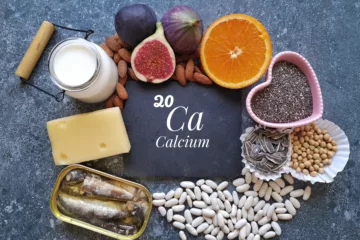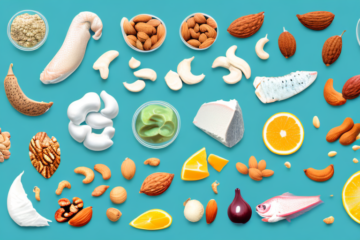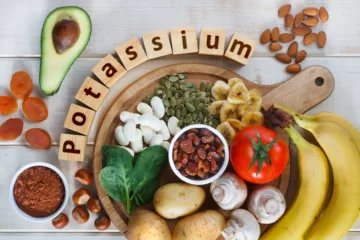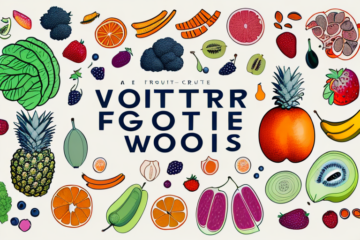Fermented foods have been around for thousands of years and have been an essential part of many cultures across the globe. The process of fermentation involves adding bacteria or yeast to food, which leads to the growth of beneficial microorganisms that help preserve the food and boost its nutritional value. In this article, we’ll take a closer look at some of the most popular fermented foods around the world, their health benefits, and how you can incorporate them into your diet.
Why Fermented Foods are Good for You
Fermented foods are known to be rich in probiotics, which are beneficial bacteria that help keep your gut healthy. They help boost your immune system, improve digestion, and absorb nutrients better. Fermented foods can also help reduce inflammation, lower blood pressure, and improve mental health.
One of the most popular fermented foods is yogurt, which is made by fermenting milk with live bacteria cultures. Other examples of fermented foods include kimchi, sauerkraut, kefir, and kombucha. These foods are not only delicious but also provide a range of health benefits.
Fermented foods have been consumed for centuries in many cultures around the world. They were traditionally used as a way to preserve food and make it last longer. Today, fermented foods are gaining popularity as people become more aware of their health benefits. Adding fermented foods to your diet can be a simple and tasty way to improve your overall health and well-being.
What is Fermentation and How it Works
Fermentation is a process that involves the conversion of carbohydrate substances into alcohol or acid, by bacteria or yeast. The fermentation process can happen naturally or be induced artificially. During the process, bacteria or yeast consume the sugar in the food and produce organic acids, alcohols, and gases.
Fermentation has been used for centuries to preserve food and create new flavors. Some common fermented foods include yogurt, sauerkraut, kimchi, and sourdough bread. Fermentation can also be used to produce alcoholic beverages such as beer, wine, and spirits. In addition to its culinary uses, fermentation is also used in the production of biofuels and pharmaceuticals.
The History of Fermented Foods
Fermented foods have been around for thousands of years and have been an essential part of many cultures, especially in Asia, Africa, and Europe. In ancient times, fermented foods were used to preserve food, making it last longer and providing a source of nutrition during the winter months.
As time went on, people began to realize the health benefits of fermented foods. They discovered that the fermentation process not only preserved food, but also increased its nutritional value. Fermented foods are rich in probiotics, which are beneficial bacteria that help to improve digestion and boost the immune system.
Today, fermented foods are becoming increasingly popular in Western cultures as people become more health-conscious. Some of the most popular fermented foods include yogurt, kefir, sauerkraut, kimchi, and kombucha. Many people are also experimenting with fermenting their own foods at home, using techniques passed down through generations or learned from online resources.
The Benefits of Eating Fermented Foods
Fermented foods are rich in probiotics, enzymes, and other nutrients that can help improve your health. They can help improve digestion, boost your immune system, promote a healthy gut, reduce inflammation, and improve mental health.
Additionally, fermented foods can also help with weight management. Studies have shown that consuming fermented foods can lead to a reduction in body weight and body fat. This is because the probiotics found in fermented foods can help regulate the hormones that control appetite and metabolism.
Top 9 Fermented Foods You Need to Try
1. Kefir: This fermented drink is made from cows, goats, or sheep milk and yeast cultures. It is rich in probiotics and can help improve digestion, boost immunity, and promote a healthy gut.2. Sauerkraut: This famous German fermented cabbage is rich in vitamins and minerals and is great for your digestive system.3. Kimchi: This Korean fermented vegetable dish is rich in probiotics and can help fight inflammation and boost your immune system.4. Tempeh: This soy-based fermented food originated in Indonesia and is known for its high protein content and probiotics.5. Yogurt: This fermented dairy product is rich in probiotics, calcium, and protein. It can help improve digestion, strengthen bones, and boost immunity.6. Miso: This Japanese fermented soybean paste is rich in probiotics and essential amino acids. It’s great for soups, dressings, and marinades.7. Pickles: Pickles are cucumbers that have been fermented in water, vinegar, and spices. They are rich in probiotics and can help improve digestion.8. Kombucha: This fermented tea drink is rich in probiotics, antioxidants, and other nutrients. It can help improve digestion, boost immunity, and reduce inflammation.9. Sourdough bread: This bread is made from fermented dough and is rich in probiotics, vitamin B, and amino acids. It’s great for your digestive system and can help improve your overall health.
10. Natto: This Japanese fermented soybean dish is rich in probiotics and vitamin K2. It’s known for its strong flavor and slimy texture, but it’s also great for your heart health and bone density.
11. Kvass: This traditional Russian fermented drink is made from rye bread and is rich in probiotics and antioxidants. It’s a great alternative to sugary drinks and can help improve digestion and boost immunity.
How to Make Your Own Fermented Foods at Home
Making your fermented foods at home is easier than you think. All you need to do is get your hands on the right ingredients, equipment, and follow the proper procedure. You can start with simple recipes like sauerkraut, kombucha, or kefir. There are plenty of instructional videos and blogs online to help you get started.
One of the benefits of making your own fermented foods at home is that you have complete control over the ingredients and the fermentation process. You can choose to use organic produce, avoid preservatives and additives, and adjust the flavor and texture to your liking. Plus, you can experiment with different combinations of ingredients and spices to create unique and delicious fermented foods.
Another advantage of making your own fermented foods is that it can be a fun and rewarding hobby. Fermentation is a natural process that requires patience and attention, but it can also be a relaxing and meditative activity. You can involve your family or friends in the process, share your creations with others, and even start a small business selling your fermented foods locally.
The Science Behind the Health Benefits of Fermented Foods
The science behind the health benefits of fermented foods is vast and complex. The beneficial bacteria in fermented foods can help boost your gut health and promote the growth of good microorganisms. Researchers are studying the role of fermented foods in reducing inflammation, improving mental health, and boosting immunity.
One of the key benefits of fermented foods is their ability to improve digestion. Fermentation breaks down complex carbohydrates and proteins, making them easier for the body to absorb. This can lead to better nutrient absorption and improved overall health.
Fermented foods also contain a variety of vitamins and minerals, including B vitamins, vitamin K, and potassium. These nutrients are essential for maintaining good health and can help support a healthy immune system, strong bones, and healthy blood pressure levels.
Fermented Foods and Gut Health: What You Need to Know
Fermented foods can improve gut health by promoting the growth of beneficial bacteria. They can help reduce inflammation, improve digestion, and boost immunity. Consuming fermented foods regularly can help prevent digestive disorders like irritable bowel syndrome and can prevent the growth of harmful pathogens in the gut.
Some examples of fermented foods include yogurt, kefir, sauerkraut, kimchi, and kombucha. These foods are rich in probiotics, which are live microorganisms that provide health benefits when consumed in adequate amounts. Probiotics can help restore the balance of gut bacteria, which can be disrupted by factors like antibiotics, stress, and poor diet. It’s important to note that not all fermented foods are created equal, and some may contain added sugars or preservatives that can negate their health benefits. When choosing fermented foods, opt for those that are minimally processed and contain live cultures.
Different Types of Fermentation Methods and Their Benefits
There are several types of fermentation methods that are used to create fermented foods. The most common methods include lactic acid fermentation, acetic acid fermentation, and alcohol fermentation. Each method has its unique benefits and produces different flavors and textures.
Lactic acid fermentation is the most common method used to make foods like yogurt, kefir, and sauerkraut. This method involves the conversion of lactose (a sugar found in milk) into lactic acid by bacteria. The resulting product is tangy and has a creamy texture. Lactic acid fermentation also increases the shelf life of the food and promotes the growth of beneficial bacteria in the gut.
Vegan-Friendly and Dairy-Free Fermented Foods Options
If you are a vegan or dairy-free, there are still plenty of fermented foods that you can enjoy. Fermented vegetables like sauerkraut, pickles, and kimchi are great vegan options. You can also try fermented soy products like tempeh or miso and non-dairy fermented drinks like kombucha or water kefir.
Another great vegan-friendly and dairy-free fermented food option is coconut yogurt. Made from coconut milk and probiotics, it has a similar texture and tangy flavor to traditional yogurt. You can also make your own dairy-free yogurt at home using non-dairy milk and a yogurt starter culture.
Fermented grains like sourdough bread and sourdough pancakes are also great options for vegans and those who are dairy-free. These foods are made by fermenting the grains with a sourdough starter, which breaks down the gluten and makes the nutrients more bioavailable. Plus, they have a delicious tangy flavor that pairs well with a variety of toppings.
How to Incorporate Fermented Foods into Your Diet
Incorporating fermented foods into your diet is easy and fun. You can start by adding a spoonful of sauerkraut or pickles to your salad or sandwich. You can also enjoy a glass of kefir or kombucha with your meal or snack. Adding fermented foods to your diet can help improve your overall health and well-being.
Another way to incorporate fermented foods into your diet is by making your own fermented vegetables at home. This can be done by using a simple fermentation kit or by following a recipe online. Fermented vegetables like kimchi and pickled carrots are not only delicious but also provide a variety of health benefits.
It’s important to note that while fermented foods can be beneficial for most people, those with certain health conditions like histamine intolerance or small intestinal bacterial overgrowth (SIBO) may need to limit their intake. It’s always best to consult with a healthcare professional before making any significant changes to your diet.
Exploring the Flavor Profiles of Different Fermented Foods
Fermented foods come in different flavors and textures, making them versatile and exciting to try. Some fermented foods have a tangy and sour flavor, like kefir and pickles, while others have a spicy and pungent taste, like kimchi and miso. Exploring the different flavor profiles of fermented foods can be a fun and delicious way to improve your health.
Additionally, fermented foods are known to have numerous health benefits. They are rich in probiotics, which can improve gut health and boost the immune system. Fermented foods are also a great source of vitamins and minerals, such as vitamin K2 and magnesium. Incorporating a variety of fermented foods into your diet can lead to improved digestion, better nutrient absorption, and overall improved health.
The Role of Probiotics in Fermented Foods
Probiotics are beneficial bacteria that are present in many fermented foods. They can help improve gut health, boost immunity, and prevent the growth of harmful pathogens. Consuming probiotics regularly can help improve overall health and well-being.
Overall, fermented foods are a great addition to any diet. They are rich in probiotics, enzymes, and other beneficial nutrients that can help improve your health. By incorporating fermented foods into your diet, you can improve your gut health, boost immunity, and prevent the growth of harmful pathogens.
Some examples of fermented foods that are rich in probiotics include yogurt, kefir, sauerkraut, kimchi, and kombucha. These foods are not only delicious but also provide numerous health benefits. For instance, yogurt and kefir are excellent sources of calcium, protein, and probiotics, which can help improve bone health and digestion. Similarly, sauerkraut and kimchi are rich in vitamins C and K, fiber, and probiotics, which can help boost immunity and reduce inflammation. Kombucha, on the other hand, is a fermented tea that is rich in antioxidants, probiotics, and enzymes, which can help detoxify the body and improve digestion.










